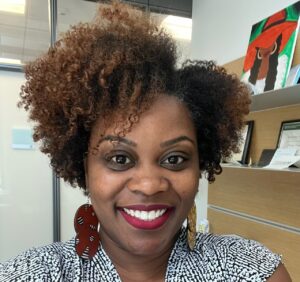Population Research Discovery Seminars

Life Course Dynamics of Gendered Racism and U.S. Black Women’s Health
Christy Erving, Sociology, University of Texas – Austin
Parrington Hall Room 360
To Join By Zoom: Register HERE
Follow this link to sign up for a 1:1 meeting with Dr. Erving during their visit on May 2nd
05/02/2025
12:30-1:30 PM PT
360 Parrington Hall
Co-Sponsor(s):
Recently, scholars have attempted to bring voice to Black women’s interpersonal experiences with gendered racism by developing measures that capture their intersectional oppression. Missing from this small, but growing, literature is the nuance of life course dynamics which suggest that Black women’s gendered-racialized discriminatory encounters could differ in content and frequency at different points in their life course. Moreover, the strategies Black women employ to cope with gendered racism are potentially differentiated by their age and birth cohort. Using quantitative and qualitative methods, this presentation will examine the various strategies Black women deploy to cope with gendered racism and the psychological health impacts of gendered racism across the life course.
Dr. Christy L. Erving is a sociologist and interdisciplinary health equity scholar. She is currently an Associate Professor of Sociology, a faculty associate of the Population Research Center, and an affiliate of the Center for Aging and Population Sciences as well as the Humanities, Health & Medicine Program at the University of Texas at Austin. Dr. Erving’s program of research draws from theories, concepts, and perspectives across various disciplines to clarify and explain distinctions in mental and physical health by race, gender, ethnic, nativity, and socioeconomic status. Her most recent projects investigate the psychosocial determinants of Black women’s health across the life course, spanning early adulthood through later life. Her work integrates sociological theoretical perspectives with insights from other disciplines to ascertain how Black women’s gendered and racialized life experiences both negatively and positively influence psychological and physiological health. She received a B.A. in Sociology and Hispanic Studies at Rice University, and M.A. and Ph.D. in Sociology at Indiana University, Bloomington, with a minor in Social Science Approaches to Health and Healing Systems. Upon completion of her Ph.D., she was a Robert Wood Johnson Foundation Health & Society Scholar at the University of Wisconsin-Madison.